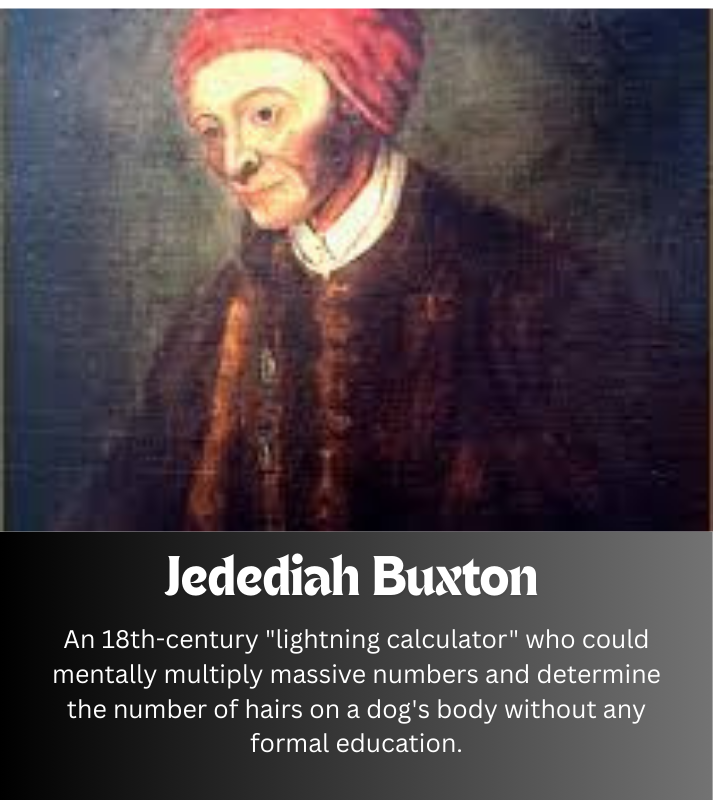Jedediah Buxton
The 18th-century "Lightning Calculator"


Jedediah Buxton was an English mental calculator from the 18th century who possessed an astonishing, yet highly specialized, numerical ability. Born in 1707 in Elmton, Derbyshire, his formal education was almost nonexistent. He was a simple farm laborer who could neither read nor write beyond his own name. Despite this lack of schooling, his mind was singularly dedicated to numbers. He saw the world in terms of calculations, measuring distances, and counting objects in his head, often to the detriment of his focus on other subjects. He reportedly had no interest in anything that was not related to arithmetic.
Extraordinary Feats of Calculation:
Buxton's unique talent lay in his ability to mentally multiply, subtract, and add enormous numbers with remarkable speed and accuracy. He was often asked to perform his calculations for others, and his reputation spread throughout England. His most famous feats included:
He was said to have calculated the number of cubic inches in a body 203 miles, 128 yards, and 2 inches long, 102 miles, 203 yards, and 3 inches broad, and 98 miles, 219 yards, and 3 inches deep. He completed this massive multiplication problem in his head, entirely without pen or paper.
He could accurately determine the number of grains of corn in a heap containing millions of grains.
When he went to London, he was taken to see a performance of Shakespeare's Richard III. While others were engrossed in the play, Buxton was mentally calculating the number of words spoken by the actors.
Jedediah Buxton: The 18th-century "Lightning Calculator"
A Journey to London:
In 1754, his fame reached the Royal Society in London. Curious to witness his abilities first hand, members invited him to their meeting. They tested him with various complex arithmetic problems, all of which he solved with ease. When asked to multiply a 39-digit number by a 39-digit number, he provided the correct answer after a month, having performed the entire calculation in his head while continuing his daily farm work.
Legacy:
Despite his incredible mind, Buxton's talent was never truly monetized, and he remained a poor farm laborer. He died in 1772, leaving behind a legacy as one of history's most fascinating human calculators. He remains a testament to the fact that mathematical genius can manifest in extraordinary and unexpected ways, even without formal training or a broader understanding of the world.
Discover the extraordinary and unique stories.
Inspire
© 2025. All rights reserved.
